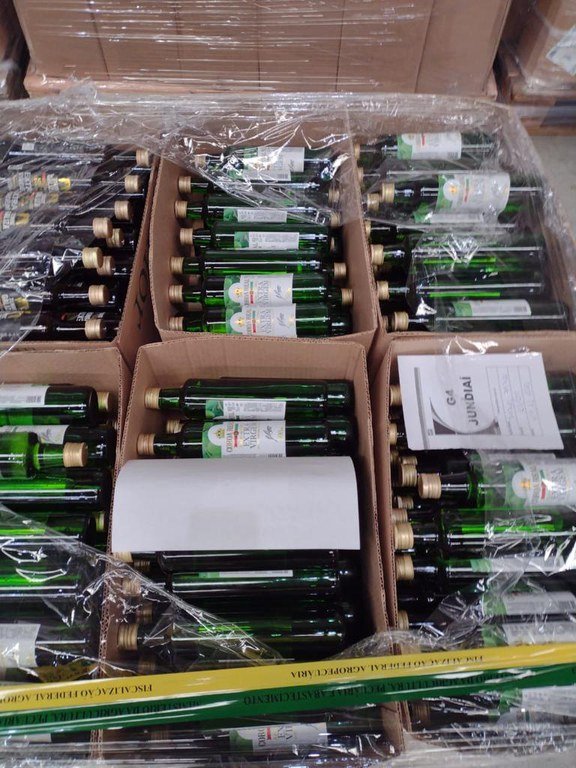A map stops the sale of 150,000 bottles of olive oil in six states
3 min read
An inspection by the Ministry of Agriculture (MAPA) to combat olive oil fraud and remove products deemed unsuitable for consumption from supermarket shelves led to the suspension of the sale of 151,449 bottles of olive oil in Sao Paulo, Rio de Janeiro, Ceará, Goiás, Parana and Santa Catarina.
Since olive oil is the second most fraudulent food product in the world, second only to fish, and given the increase in consumption of this product at the end of the year, the conduct of the map aims to prevent the sale of fraudulent products and prevent the consumer being deceived.
The results of the operation were announced at a press conference held Thursday (16) in Porto Alegre.
In all, 24 irregular brands are found in supermarkets (the list is at the end). Irregularities are products not registered on the map, adulterated, confidential and smuggled. During the process, three secret factories were found that were filling oils that were nothing more than a mixture of vegetable oils of unknown origin. The registration of a factory within the city of São Paulo has also been suspended, after verification of fraud in the manufacture of its products during 2021.
Consumers should not purchase oils from these brands advertised by Mapa. There is also a warning for supermarkets, as the place that offers one of these products for sale will be responsible for the violation and will respond to the ministry with fines of up to 532 thousand Brazilian reais, explained the director of the Department of Inspection of Products of Plant Origin, Glauco Bertoldo. The oils were sold all over the country.
Extra virgin olive oil can be classified into three types: extra virgin (acidity less than 0.8%), virgin (acidity between 0.8% and 2%), and Lampante (acidity greater than 2%). The first two types can be eaten fresh, while preserving all the beneficial aspects for the body. The third type, the Lampante type, must be refined to be consumed, when it is classified as refined olive oil. Analysis is complex and requires advanced training and equipment. Product fraud is confirmed in analytical reports evaluated by the official network of Federal Agricultural Defense Laboratories (LFDA).
The examination of olive oil is based on Law No. 9.972 / 2000, regulated by Federal Decree No. 6.268 / 2007, and by the normative instructions of Map No. 1/2012, which defines the technical regulation of the product.
The operation was supported by Anvisa, state and municipal health watchdogs, the Public Prosecution Office and the Civil Police. It has been proven that joint action is necessary to achieve a more effective anti-fraud outcome of the inspection.
List of irregular lubricant brands intercepted in the market in 2021:
Alcazar
Alentegano
I
Barcelona
Barcelona stained glass
Castle of the Mor
real crown
of olives
Del Toro
from the boss
epic
farm ownership
Figueira do Foz
Madeira Island
Monsanto
Monte Ruivo
Porto Gallo
Porto Real
Quinta da Beira
Quinta da Regalera
Galicia Tower
tradition
Brazilian traditions
ancient valley
consumer
The most common fraud in the olive oil industry is mixing soy oil with artificial colors and flavors. Cases of refined olive oil sold as extra virgin oil have also been found.
To avoid buying an oil that is outside the olive oil classification compliance standards, check out some tips.

“Entrepreneur. Music enthusiast. Lifelong communicator. General coffee aficionado. Internet scholar.”








